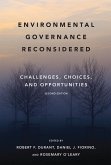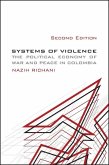Updated analysis of how the increasing polarization of American politics has been accompanied and accelerated by greater income inequality.
The idea of America as politically polarized—that there is an unbridgeable divide between right and left, red and blue states—has become a cliché. What commentators miss, however, is that increasing polarization has been closely accompanied by fundamental social and economic changes—most notably, a parallel rise in income inequality. In this second edition of Polarized America, Nolan McCarty, Keith Poole, and Howard Rosenthal use the latest data to examine the relationships of polarization, wealth disparity, immigration, and other forces. They find that inequality feeds directly into political polarization, and polarization in turn creates policies that further increase inequality.
Paul Krugman called the first edition of Polarized America "Important.... Essential reading for anyone who wants to understand what's happening to America.” The second edition has been thoroughly brought up to date. All statistical analyses, tables, and figures have been updated with data that run through 2012 or 2014, and the text has been revised to reflect the latest evidence. The chapter on campaign finance has been completely rewritten (with Adam Bonica as coauthor); the analysis shows that with so much "soft” money coming from very wealthy ideological extremists, there is even greater campaign contribution inequality than income inequality.
The idea of America as politically polarized—that there is an unbridgeable divide between right and left, red and blue states—has become a cliché. What commentators miss, however, is that increasing polarization has been closely accompanied by fundamental social and economic changes—most notably, a parallel rise in income inequality. In this second edition of Polarized America, Nolan McCarty, Keith Poole, and Howard Rosenthal use the latest data to examine the relationships of polarization, wealth disparity, immigration, and other forces. They find that inequality feeds directly into political polarization, and polarization in turn creates policies that further increase inequality.
Paul Krugman called the first edition of Polarized America "Important.... Essential reading for anyone who wants to understand what's happening to America.” The second edition has been thoroughly brought up to date. All statistical analyses, tables, and figures have been updated with data that run through 2012 or 2014, and the text has been revised to reflect the latest evidence. The chapter on campaign finance has been completely rewritten (with Adam Bonica as coauthor); the analysis shows that with so much "soft” money coming from very wealthy ideological extremists, there is even greater campaign contribution inequality than income inequality.
Dieser Download kann aus rechtlichen Gründen nur mit Rechnungsadresse in A, B, BG, CY, CZ, D, DK, EW, E, FIN, F, GR, HR, H, IRL, I, LT, L, LR, M, NL, PL, P, R, S, SLO, SK ausgeliefert werden.









